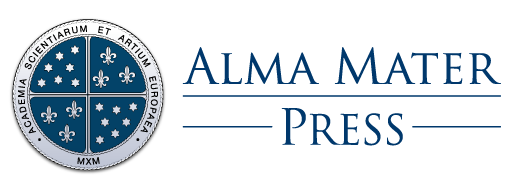Private Archives in South Africa: Their Protection and Access with Particular Reference to the now Defunct Lutheran Theological Institute Library and Archives
DOI:
https://doi.org/10.33700/2670-451X.28.1.59-65(2018)Abstract
This treatise is a case study that provides an insight into the status of private archives in South Africa with regards to their protection and access provisions. The paper is based on the author’s experiences as a manuscript librarian at the now defunct Lutheran Theological Institute (LTI) Library and Archives and research on faith-based archives which this institution was endowed with. The thesis of this paper is that records and archives legislation in South Africa as far as it applies to private archives is lethargic and not comprehensive enough to provide an enabling environment for their stewardship which is leading to loss of documentary heritage. The demise of this institution and the subsequent loss of the collection is testimony. In consequence, faith based collections (religious archives) need to be legislated like their counterparts public archives for protection and access in terms of the law.
Downloads
References
Archival Platform. (2014). State of the archives: an analysis of South Africa’s national archival system. Available at: http://www.archivalplatform.org/images/resources/State_of_the_Archive_FOR_WEB.pdf (accessed on 20.01.2018).
Archives and Records Association (ARA). Code of ethics. (2016.) Available at: http://www.archives.org.uk/images/ARA_Board/ARA_Code_of_Ethics_final_2016.pdf (accessed on 20.01.2018).
Buchmayr, F. (2004). Secularization and monastic libraries in Austria. In: Raven, J. (ed.). Lost libraries: the destruc-tion of great book collections since antiquity, pp. 145-162. Houndmills, Basingstoke, Hampshire; New York: Pal-grave Macmillan.
Dominy, G. (2017). The effects of an administrative and policy vacuum on access to archives in South Africa. Archival Science, 17, pp. 393-408.
Eberhard, K. (2008). Getting organized. In: Betttington, J., Eberhard, K., Loo, R. and Smith, C. Keeping archives, pp. 29-60. 3rd ed. Canberra, ACT, Australia: Australian Society of Archivists, Inc..
Garaba, F. (2014). Religious archives in the east and southern Africa regional branch of the International Council on Archives (ESARBICA) region: their importance and the need for a national framework. ESARBICA Journal, 33, pp. 46-56.
Garaba, F. and Zaverdinos, A. (2014a). The Evangelical-Lutheran Church in South Africa: an introduction to its archival resources held at the Lutheran Theological Institute (LTI) Library, and the challenges facing this archive (Part One). Missionalia: Southern African Journal of Missiology 42, (1-2), pp. 5-28.
Garaba, F. and Zaverdinos, A. (2014b). The Evangelical-Lutheran Church in South Africa: an introduction to its archival resources held at the Lutheran Theological Institute (LTI) Library, and the challenges facing this archive (Part Two). Missionalia: Southern African Journal of Missiology, 42, (1-2), pp. 29-37.
Gilliland, A. J. (2014). Conceptualizing 21st century archives. Chicago: Society of American Archivists.
Glaudemans, A., Jonker, R. and Smit, F. (2017). Introduction. In: Glaudemans, A., Jonker, R. and Smit, F. (eds.). Archives in Liquid Times, pp.ix-xiii. ’s-Gravenhage: Stichting Archiefpublicaties.
International Council on Archives [ICA]. (1996). Code of ethics. Available at: https://www.ica.org/sites/default/files/ICA_1996-09-06_code%20of%20ethics_EN.pdf (accessed on 20.01.2018).
International Council on Archives [ICA]. (2012). Principles of access to archives. Available at: https://www.ica.org/sites/default/files/ICA_Access-principles_EN.pdf (accessed on 20.01.2018).
International Council on Archives [ICA]. (2016). What are archives? Available: https://www.ica.org/en/what-archive (accessed on 20.01.2018).
International Records Management Trust [IRMT]. (1999). The management of public sector records: principles and context. Available at: https://www.irmt.org/documents/educ_training/public_sector_rec/IRMT_principles.pdf (accessed on 23.01.2018).
Kuhn, R. (2003). One million mark. University of Natal Library Bulletin, No. 354. Available at: http://library. ukzn.ac.za/pdfs/Pietermaritzburg%20Library%20Bulletin/354Jul2003.pdf (accessed on 05.01.2018).
Kuhn, R. (2018). Email letter to author on 10 January.
Ngoepe, M. (2011). Is archives and records management profession in South Africa cursed? ESARBICA Newsletter, 23, (Apr.-June), pp. 2-3.
Nicholson, D. R. (2015). The South African Copyright Law: a historical overview and challenges to address access to knowledge issues in a country in transformation.
Paper presented at the 81st IFLA World Library and Informa-tion Congress (WLIC), Cape Town, South Africa, 15-21 August.
Parliamentary Monitoring Group. (2016). Available at: https://pmg.org.za/committee-meeting/22093/ (accessed on 23.01.2018).
Pearce-Moses, R. (2005). Access. Available at: https://www2.archivists.org/glossary/terms/a/access (accessed on 23.01.2018).
South Africa. (1996). National Archives and Records Service of South Africa Act (NARSSAA). Available at: https://www.nationalarchives.gov.za/sites/default/files/National%20Archives%20and%20Records%20Ser-vice%20Act_0.pdf (accessed on 23.01.2018).
Sulej, Z. (2014). Access to archives in South Africa in the first twenty years of democracy: is there transformation or deformation? ESARBICA Journal, 33, pp. 18-35.
Universal Declaration on Archives. (2011). Available at: https://www.ica.org/en/universal-declaration-archives (accessed on 24.01.2018).
von Rutte, H. (2018). Access to archives of organizations of faith traditions. Comma: International Journal on Archives 2016 (1-2), pp. 143-148.

